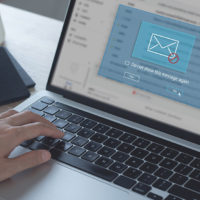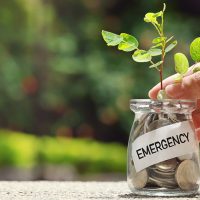How to Make Budgeting a Reality This Year
If your budgeting plans and goals did not quite work out the way you had hoped, you are very likely thinking of how to make those goals a reality this year. You probably first need to re-evaluate your approach to budgeting. For most people, budgeting usually starts with a flourish, and their plan is followed religiously. They often employ intricate spreadsheets or a notebook to track everything, follow strict grocery lists, and even open separate bank accounts to manage the chaos. All of this while being convinced they’ll have all of their financial problems whipped by year-end.
But then the reality and unforeseen necessities of life set-in and begin to chip away at the budget. It seems that no matter how disciplined people are, there are financial emergencies—and choices—that too often spell the doom of the best-planned budget. It also seems that when the budget armor cracks…it ends up shattering!
Most people react to this by panicking and a feeling of personal failure. They then abandon the entire budget process altogether and end-up in more financial peril than when they began. The combination of self-doubt and free-spending is a very dangerous pair. Please do not despair, because at Empeople we are here to help you along your financial path. We want to partner with you toward success and we hope this post helps you. We have highlighted four ways that we think will change your perspective about budgeting and that will make your budget become a manageable reality.
Budgeting is Personal
Personal budgeting can be tricky and daunting because it is…personal. Many articles that discuss budgeting fail to account for the fact that each of us is in very unique situations with very unique goals. Far too often these articles seem to relate to everyone else except you and your needs.
Your passion may be motorcycle road trips or paintball or quilting or spelunking. To an all-encompassing budget profile article, any of those interests are very likely to be early to the chopping block from a recommended budget. Those interests, though, are the sweet reward for all of your hard work and dedication. Your personal budget, remember, is personal to you…so affording yourself money to enjoy your greatest passion is all part of the plan.
None of us are the same, and trying to fit into a budgeting mold created by someone else is doomed to fail before you even get started. Think about your life throughout a typical year, and list all of the expenses you’re responsible for in order to live (food, clothing, and a home) and the expenses you have in order to enjoy life (paintball, quilting, etc.). This list then gives you a bird’s eye view of what is necessary and what is subjective in your budget.
What to do:
Write down a list of things that you are responsible for each month as well as a list of the things which make you happy. Then list the number of dollars that you’re required and able to spend each month (ie: rent ($950), groceries ($600), gas ($200), coffee ($50), etc.) to get your baseline of expenses. Making this list alone will shed tremendous light upon your spending and living habits.
Budgeting is simply to help you be aware
For many people, budgeting is regarded as being restrictive and takes the fun out of life. However, the goal of budgeting is simply to create awareness of your cash flow; by no means should your budget be regarded as restrictive to the point of discomfort. It’s all about being aware of where your money is being spent. Once you’ve got a good grasp on the specifics of your cash flow, you can make smarter, more well-informed decisions.
What to do:
Record every transaction you make, from the dinner date to that extra roller dog at the gas station. If you’re computer savvy, you can use an Excel or Google sheet. If you’re not, a notebook works well, too. Remember, the goal of this exercise is to simply understand the flow of your cash…both in and out.
Budgets are merely a tool to build good habits
Budgets are a tool to help you mold your regular behaviors into a set of more financially responsible regular behaviors. The key to molding your behaviors to be more financially responsible is through micro-habits that you incorporate into your daily life. To be successful at budgeting, you have to start by making it a habit. Research has shown that it takes anywhere from 2-8 months for a habit to really take form and to make it stick. So it’s highly imperative to be patient as well as diligent.
As was discussed earlier, a great habit to start is tracking your spending. Through this simple act alone, you will become fully aware of where every hard-earned dollar is going. If you forget to track certain things or don’t know the exact amount, simply use a rough estimate.
Another key habit to develop is to slowly phase out undesirable impulse purchases. A common example is your daily latte from the coffee shop. If you find that you spend $150 on coffee a month, and it is an expense in which you think is excessive, make it a disciplined habit to only buy coffee on weekdays instead of weekends. Consistently work on this habit for at least 8 weeks and keep the habit going until the urge fully disappears.
Keep in mind that the behavior that’s undesirable is entirely subjective and up to your judgment. If you don’t think spending $150 on coffee is a waste, then by all means get caffeinated! You could also spend one month’s coffee budget on a machine to make your lattes at home and really see the savings add up.
It’s a little ironic, but once these micro-habits are ingrained and built onto your daily routine, you actually will not need a budget anymore. Smart financial habits and behaviors will eventually become second nature.
What to do:
Review your transaction log, identify recurring transactions that you may deem not financially healthy. Make an effort to adjust these actions so that they can become, slowly and consistently, habitual.
 Budgets need not be perfect.
Budgets need not be perfect.
Let’s say you allocated $1,000 for your monthly grocery and food bill. After reviewing your transaction log, you learned that you actually spent $1,200. Many people freeze at this point, not knowing what to do when they go over budget. Surprisingly, this is actually a good thing! Now you’re being aware of your spending. What you need to do now is to go a step further and figure out where and why you spent that extra $200.
Separate your needs from your wants. Things such as junk food and soda are common items in your bill that you may consider buying less of. That’s not to say that you can’t ever again have Cheetos and Pepsi, but rather budgeting will help you allocate money for certain things more efficiently and effectively. Add a junk food line into your budget while being conscious of not letting it spill into your actual grocery budget.
The reality is that budgets are not perfect and never will be. You likely will overspend in some areas and big, unforeseen expenses may pop-up to derail your initial plans. When circumstances change, the whole budget has to adapt and change along with it. Continuously tweak things and be in search of that happy medium throughout your budgeting journey.
What to do:
Review your budget at the end of every month, identify areas you could improve, and adjust your budget accordingly so it’s realistic and attainable.
Where do I start with budgeting, if I’m not good with numbers?
Empeople makes it easy for our members to create and learn to work with their budget, using our member-exclusive financial education program. Not only is this program great for budgeting, but it will also teach you other financial practices such as savings, mortgages, investment planning, etc. The program is an interactive learning program designed with your busy schedule in mind. And best of all, the program is FREE! Let Empeople help bring your financial goals more into focus.
To add to your budgeting & personal finance arsenal, Empeople Money Manager, a Personal Financial Management tool is another great way to get your budgets organized without having to do them on paper nor crunching numbers.
Money Manager is available to all Empeople members via digital banking at no charge. Allowing you to create budgets and savings strategies, track spending habits, set financial goals, monitor income, and bills, and more!
Reach out to one of our many Business Development Managers to get into the Fast Start Program.
Conclusion
One of the biggest reasons you should follow a budget is because you get to watch your hard work pay off in real-time. Tangible results spur inspiration and rewards you to keep going even if you’re facing some difficulties. When you look at your financial statements at the end of the year and see that you’re on track to meet your goals, surely you’ll feel a sense of pride and joy.
Remember, your budget does not have to be perfect, it is only a tool to build financially responsible habits, and to help you be aware of your spending. The best part about budgeting is that you have the freedom and flexibility to create one that fits your lifestyle.



